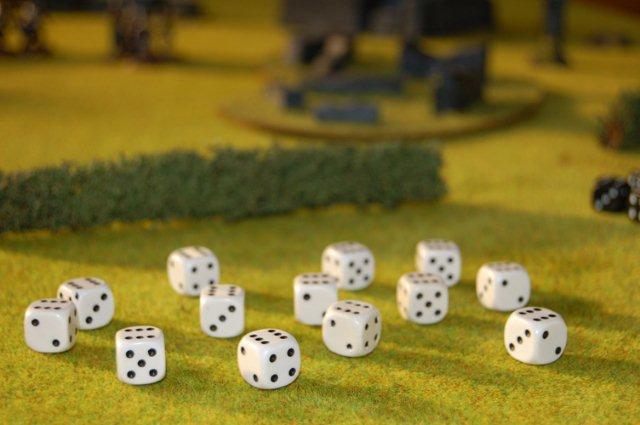…or – howto improve your combat experience
It’s probably 15 years ago, when we played a lot of games after school and on weekends. Back then we were pretty inexperienced and it was a different – drive. When I was younger, I think most of us were powermongers in one or more ways. Mostly it was great to beat the evil guys (sometimes it wasn’t necessary to have them being evil at all) and the more damage you made, the better it was.
Things are constantly changing and – hopefully – improving. It’s basically still about having options and achieving something together, but the game-mechanics are getting more and more in the background, as long as the general feeling of a working game-mechanic is present. It’s about telling the story with the utmost possible imagination level. As a dungeon master you’ve to prepare a lot and be prepared for most possiblities. Combat is, in most gaming rounds, an essential part, it’s some kind of highlight in the game. Now this is about improving the overall gaming experience for you with a few ideas that we’re working on or have been working on for a decade now.
Descriptions are the key, but without everyone taking a part in this it will hardly work. Therefore we have two parts of the story – for once the dungeon master part and secondly (and often more important – the player part).
Dungeon Master
Most often the dungeon-master is the creator of the world and therefore it depends very heavily from his descriptions of what the players imagine and how the whole game feels like. A dm’s premise most often is improve in story-telling and you’ll captivate your players and win together in the whole experience. Usually the dungeon master has quite a few details to look at – therefore I suggest you get yourself some notes that remind you on what details you want to focus on. For me those are the following (ranked by things I easily forget):
- The smell of the surroundings (especially during combat with aberrations this can be gruesome detail ;))
- The temperature (fireball and cone of cold might have a little impact)
- The condition of everyone (though you are mostly aware of the adversaries and allies and not the pc’s there might be questions for you to be asked)
- Light conditions, something “we” (at our gaming table) tend to forget quite often – unfortunately because it makes for a great factor when it comes to thrill.
- Weather if you’re outside, slippery surfaces, lightning, snow, ice, fog and many other things make quite a difference when you’re dealing with a bunch of orcs.
Player
The player, having the comfortable option only to focus on one or usually max 2 characters (in case of animal companions, familiars or cohorts) has his own responsibility in participating actively (as active as possible) in the description of everything around him. Depending on time, day and general comfort and condition of the players this might come very natural or might be a real tough challenge… I try to motivate my players (when I’m in the DM role) as much as I try actively to participate in creation of the atmosphere when I’m on the player-side of the table. Only by participating in the game one is able to change something and move on in the whole process.
Most important things to keep track of, for a player should could be:
- Describe your own actions, especially during social and combat interactions. The more you describe, the more the others will see of your scene.
- Keep track of your character wounds and special conditions. Personally I find it very sad when you’ve been hit by several fireball, devastated and wrecked armor, try to find some rest in the next tavern and look very surprised when you’re asked _what the hell_ has happened to you. And moreover if you’re reacting like: “Nothing, why are you asking?”
- Participate actively instead of passive reception of happenings. Try to sniff in the air, wonder about the latest description, ask for details, be creative – the world isn’t the dungeon master’s solemn responsibility. He’ll let you know if you’ve gone too far but as a player you really can help keeping in tough situations the spirit high and the imagination going.
Hardships
Finally a list of ideas what can happen to your (np-) character (or your players) and some ideas what is affected by this.
- Fatigue and Exhaustion
bloodshot eyes, weary expression, hardly able to raise a hand - Poison and Disease
colored tongue (or other bodyparts), shaky grip, tired, aching body, weird behaviour, light skin
helpful if the same poison over time tends to produce the same effect… - Fire, Acid, Electricity, Ice
frostbite, burns, scars, broken and destroyed equipment, smoking hair, colored skin, holes where they shouldn’t be - State of Mind (insane, confused, …)
believe me, one giggle at the right time can increase tension, produce some laughter and still create the right atmosphere - …
As usual just a few ideas to keep the whole game going…
